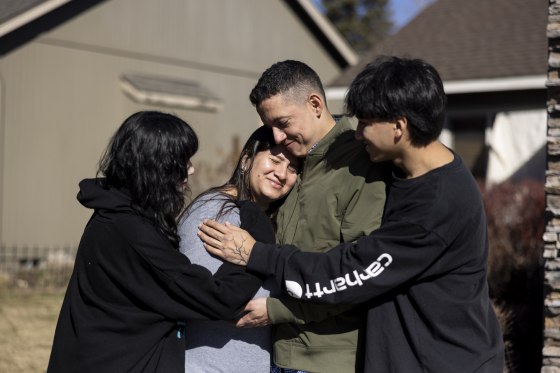María del Carmen Chaparro knows the frenzy of forced displacement, the sad routine of grabbing some clothes and running with her husband and four children, fearing being murdered. “It’s your life, or they take your children, they recruit them,” she said in an interview.
Due to her work as a community political leader in Colombia, Chaparro was persecuted and threatened by criminal groups until she crossed the border into Ecuador in 2023.
But the situation there was "terrible for us," she said; they couldn't get work, didn't have food and felt "impressive xenophobia" against her family.
While the family was in a shelter in Ecuador, they came into contact with United Nations officials who processed their refugee cases and referred them to Welcome Corps, a program created by the State Department in January 2023 to provide qualifying refugees a path to legal, permanent status in the U.S. — with help from people in the U.S.
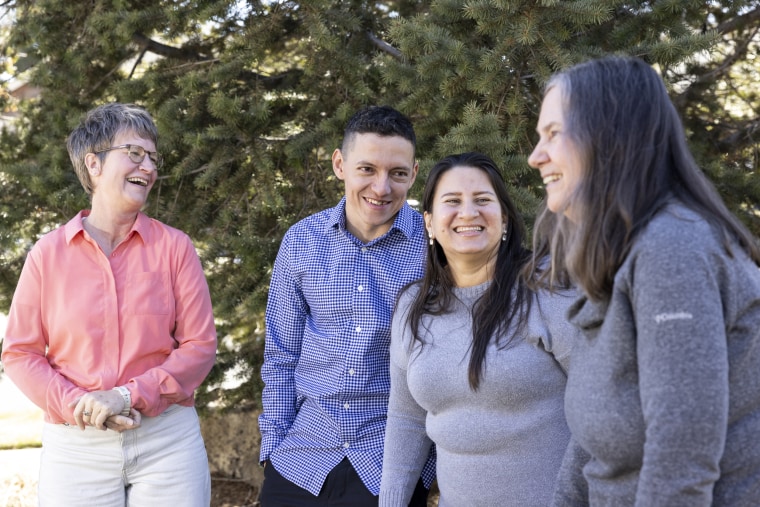
Through Welcome Corps, American citizens or legal permanent residents can form a group and sponsor refugee families, facilitating their transition to life in the U.S.
Chaparro and her family now live in Bend, Oregon, where a group of sponsors from the city’s Antioch Church came together to sponsor them, facilitating their arrival and helping them as they integrate into their new community.
“It was like being born again, like an opportunity to rest and be able to give my children a life without persecution,” Chaparro said.
Opening a legal pathway for refugees — with Americans' help
Individuals eligible to participate in Welcome Corps can be of any nationality but must meet the definition of a refugee under U.S. law and have documents proving they’ve been registered through the U.N. or the country where they’re currently at as refugees. They cannot have been previously rejected for resettlement in the U.S. through the U.S. Refugee Admissions Program.
“The new thing is that there is an open door for people from Latin America. For much of our history, the refugee program focused on people from countries in other parts of the world. Now the door is open for people in Latin America and there are 50,000 visas available,” said Cecilia Muñoz, co-founder of Welcome.us, an organization that supports community groups that mobilize volunteers and sponsors to help people newly arrived in the U.S.
Muñoz, who was born in Detroit to parents who immigrated from Bolivia, served as President Barack Obama's domestic policy adviser and director of the domestic policy council.
“The distinction between a refugee who is in Latin America and a person who is seeking asylum is that those who request asylum come to the United States to make their request. The refugees who can apply for the Welcome Corps program are people who are still in the region,” explains Muñoz.
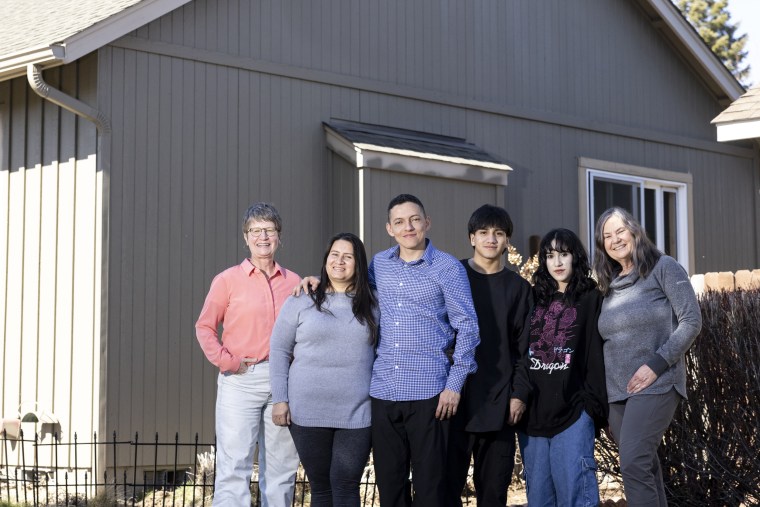
“If they have received refugee status in the region, the program gives us Americans the opportunity to serve as sponsors for those people and help them start a new life in this country,” said Muñoz.
The sponsoring group helps refugees transition to life in the U.S. and the group must also demonstrate the financial ability to support the refugee during their first 90 days in the country (in the amount of $2,425 for each person).
The sponsors are also guides for the newly arrived refugees, and that includes doing things like welcoming them when they arrive at the airport, helping them get housing and helping adults find employment, enrolling children in school, helping them enroll in state and local benefits and in English-learning programs — all important factors in starting to build a new life, explained Keegan Pyle, director of sponsorship programs at Welcome Corps.
Amy Kasari, who lives in Bend and is a pastor at Antioch Church, was one of the organizers of the sponsorship group that has helped Chaparro’s family.
“We have found that our large community has been very welcoming and interested in learning about their past and the culture they come from. There is a lot of familiarity with the food, music and different cultural aspects of Latin American culture. It was a very easy transition,” she said about the six months that have passed since the Colombian family arrived.
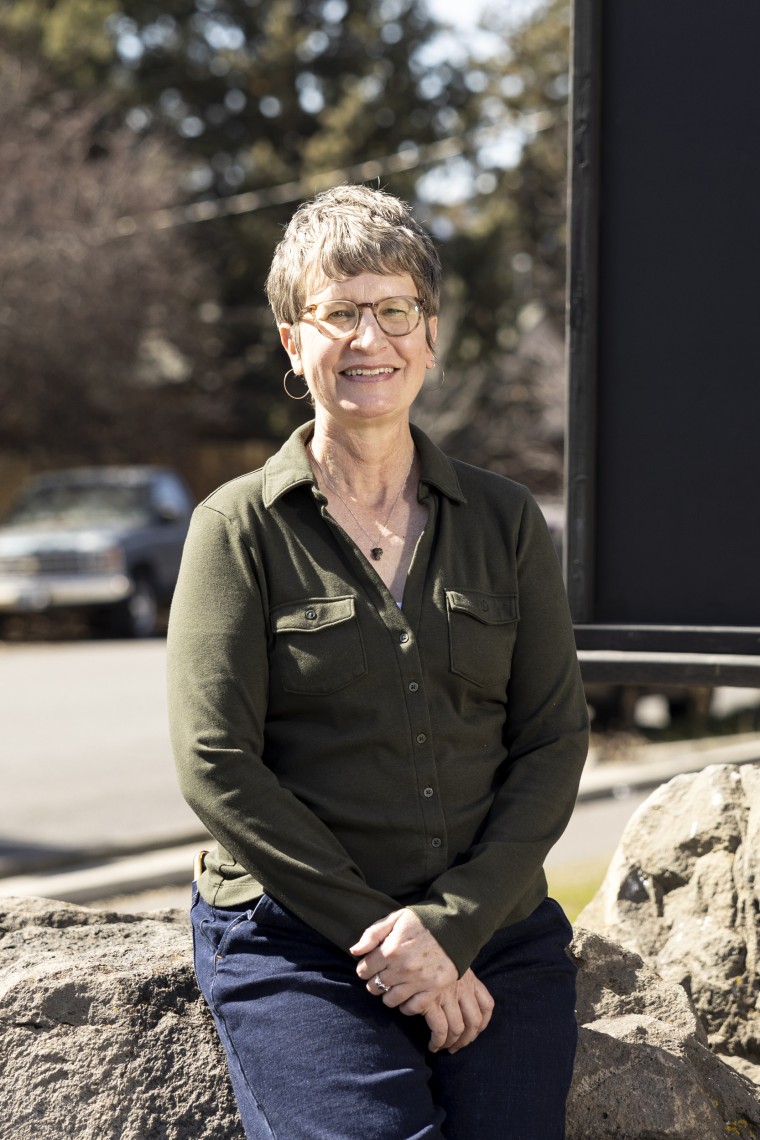
Kasari said the experience has been so positive for the community that they are forming another group to sponsor a new family through Welcome Corps.
“The biggest challenge of hosting a family is finding housing. So we are working with different landlords and real estate agents to locate some good housing options. And, when we have that ready, we will begin the process to be able to receive another family in the coming months,” she said.
Over 65,00 people have formed sponsor groups throughout the U.S. In December, the program was expanded to allow sponsors to facilitate the resettlement of refugees with whom they have personal connections, including family, friends, classmates and co-workers. Sponsors have submitted over 13,000 applications to help refugees they know directly.
“Welcome Corps is a great advance because it allows citizens and people who are living legally in the United States to request people they know who are refugees ... In addition, it accelerates the resettlement process in the United States,” Andrew Selee, president of the Migration Policy Institute, an independent research group, said.
Seele said the fact that the program uses the same networks that already exist to receive and help refugees settle — family groups, religious organizations — is what makes it a good idea.
Forging ties and a community
Those accepted into Welcome Corps like Chaparro and her family acquire refugee status in the U.S. and can start working once they enter the country. Additionally, they can apply for permanent resident status after one year and, after five years, are eligible to become citizens. They are also eligible for federal and state refugee benefits such as medical coverage through Medicaid and supplemental food assistance and other programs.
For Chaparro and her family, the experience is a chance to start anew.
Chaparro was a local political leader in Cúcuta, a Colombian city bordering Venezuela, and began to be persecuted by armed groups since she was very young. “That persecution began in 2002, with the death of my stepfather. I was a witness to the person who came looking for him to end his life,” she said, adding she was always found by groups who threatened her even after trying to move to different parts of the country. According to official figures, in 2023 alone, 181 social leaders and human rights defenders were murdered in Colombia.
Chaparro still worries about her 22-year-old son Steven, who couldn't leave Colombia when they did and is now in Ecuador doing paperwork with Welcome Corps.
Meanwhile, Chaparro and her family have begun to adjust to life in Bend, a city of 100,000. She works in a hospital and her husband in a cleaning company, and they both study English to integrate more quickly.
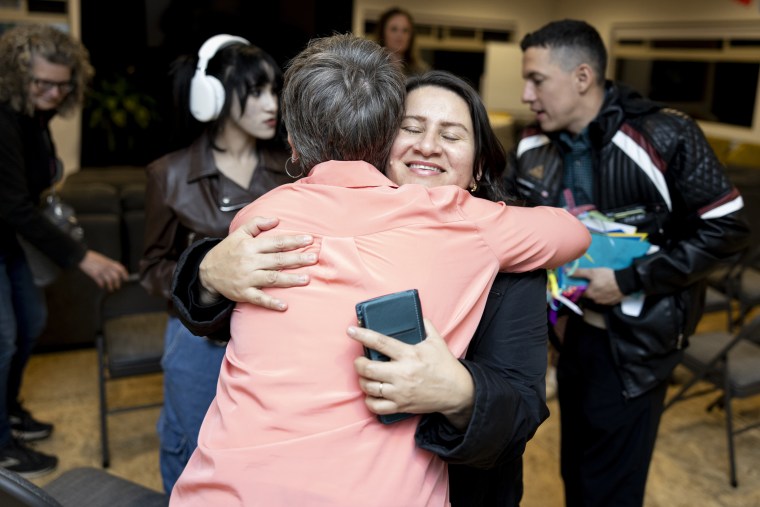
Kasari, Antioch Church's pastor, said the experience with refugees has been transformative for her community. She explains that, at first, her congregation wanted to give space to Chaparro’s family, so they would leave food for them at their doorstep. But the family “wanted us to enjoy dinner with them and get to know them as part of the community.”
“What we discovered is that this family from Colombia was grateful for everything, but what they really wanted was a relationship and friendship, and that’s what we did. So the entire group that has been working with them has grown a lot in their understanding of the community and how it extends across different cultures,” the pastor said.
Chaparro's husband, John Rodriguez, 33, was still in a state of wonder over his new surroundings in Oregon. “When we got here we saw that someone opened the window of our house and we saw deer nearby, in the garden, eating grass. In all my years in Colombia, I couldn’t see them because the deer were afraid of people,” he said.
For her part, Chaparro said that her goal is to give back a little for all the love and collaboration she has received in recent months. “My dream is to have a foundation to help migrants," she said, "work with the community, and give opportunities to people who really need it."
Muñoz said the process changes everyone who is involved.
“In this country we have a long history with our refugee program and that is why we know that they need help for at least three months, but many times they need much more. And what we have seen is that the process transforms the life of the refugee, but it is also a transformation for the person who is welcoming," said Muñoz. "It is a way to get to know the rest of the world, connect with the situation in the rest of the world and also improve your own community."
For more from NBC Latino, sign up for our weekly newsletter.
A version of this story was previously published in Noticias Telemundo.
